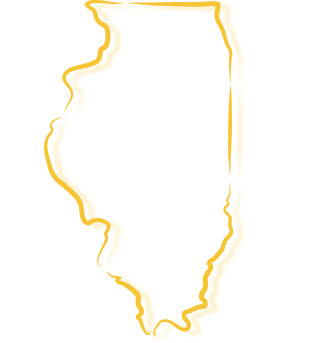Drowsy Driving Causes Motor Vehicle Collisions

By Zane T. Cagle | February 5, 2024 | Car Accidents, Drunk Driving, Featured
When it comes to sleep, it is not surprising that 1 in 3 Americans are sleep deprived according to the National Highway Traffic Safety Administration. Whether your sleep deprivation is due to a new baby, late nights socializing, extended work shifts or simply long hours of work, we often cut corners in our schedule for sleep. Health experts tell us sleep deprivation has long term negative health impacts. Sleep deprivation presents immediate roadway dangers through drowsy driving. Out of the 35% of reported Americans that get less than seven hours of sleep, one in 20 reported falling asleep at the wheel in the past month. In fact, drowsy driving is one of the most overlooked dangers on our roadways. It’s estimated that 1,550 deaths and 40,000 personal injury accidents are caused by drowsy drivers.
There are many reasons why Americans are constantly among the most sleep-deprived in the world. Aside from the many daily worries that keep us awake at night, our society seems to reward those who stay up working or socializing rather than sleeping. Too often, we wear sleep deprivation as a badge of honor. However, sleep deprivation causes drowsy driving. Drowsy driving contributes to causing motor vehicle crashes. Sleep deprivation is so relatable because every one of us faced either shortage of time to sleep or inability. Clearly, being proud of sleep deprivation is a bigger cultural issue and that problem will not be solved in this article. This article, is about awareness. Awareness of a problem is the first step to solving the problem.
At at time when we are seeing a record-breaking number of fatal and serious injury crashes, any steps we take to improve safety help. Being a safer driver impacts you as well as countless other on the roadway.
Drowsy Driving -Scope of the Problem
It is difficult to know precisely the actual number of drowsy driving crashes, injuries and fatalities. Crash investigators can look for clues that drowsiness contributed to the crash, but these clues are not always clearly identifiable or conclusive. The NHTSA’s census of fatal crashes and estimate of traffic-related crashes and injuries rely on police and hospital reports to determine the incidence of drowsy driving. NHTSA estimates that in 2017, about 91,000 police-reported crashes involved drowsy drivers. These crashes led to an estimated 50,000 people injured and nearly 800 deaths. There is broad agreement across the traffic safety, sleep science, and public health communities that this is an underestimate of the impact of drowsy driving. It is harder to detect drowsy driving at a crash site. Unlike drunk driving, the driver who may have been dosing off it usually very wide awake right after a crash.
Drowsy driving can result in slower cognition and slower reaction time. In many ways, drowsy driving can appear like drunk driving. Driving when under the influence of alcohol is clearly a dangerous choice. Drowsy driving has and can happen to about any of us. Knowing the signs of drowsy driving and being aware of the problem can improve our roadway safety.
Common Drowsy-Driving Facts
Three factors that are commonly associated with drowsy-driving crashes:
- Occur most frequently between midnight and 6 a.m., or in the late afternoon. At both times of day, please experience dips in the circadian rhythm-the human body’s internal clock that regulates sleep;
- Often involve only a single driver (and no passengers) running off the road at a high rate of speed with no evidence of braking;
- Frequently occur on rural roadways and highways.
Tips to Avoid Drowsy Driving Crashes
Of course, the antidote to drowsy driving is to get adequate sleep. Granted, the most obvious is not always answer is not always easy to achieve. Sleep is not cumulative meaning, we cannot actually “catch up” on our sleep over the weekend. Experts recommend that everyone should make it a priority to get at least eight hours of sleep each night. Sleeping eight hours on a daily basis improves your health and reduces the likelihood of drowsy driving.
Before the start of a long trip, get a good night’s sleep. If you are driving a long distance with others, alternate drivers.
Avoid medications that causes drowsiness and of course, do not consume any alcoholic beverages. Consumption of alcohol enhances drowsiness even if you are not above the minimum blood alcohol. If you drive a long distance, avoid peak sleepiness periods (midnight to 6 a.m.) Also, as many of us experience, late afternoons are also a peek drowsiness time.
If you must drive a long distance and during peak sleepiness periods, stay alert for signs of drowsiness such as crossing over roadway line and hitting rumble strips. If you haven’t noticed a sign in quite awhile, you should take a break. When we are drowsy, we fail to notice road signs or billboards anymore and can get tunnel vision. By and large, many of those who report falling asleep at the wheel are solo drivers.
Teens–Many teens do not get enough sleep at the very stage in life where their biological needs for sleep increases. This lack of sleep and inexperience makes teens more likely to drowsy-driving crashes.
No matter your age or experience, make sure anyone in the family gets adequate rest before driving long distances.
Caffeine through coffee and energy drinks is not always enough. The effects of coffee and energy drinks are only a short time. If you drink coffee and are seriously sleep-deprived, you may still have “micro sleeps” or brief losses of consciousness. Just the very phrases “micro sleeps” or “brief loss of consciousness” can be catastrophic when driving a car. Coffee and energy drinks do not provide long periods of alertness. If you do start to get sleepy while you are driving, experts recommend that you drink two cups of coffee and pull over in a safe place for a short 20 minute nap. Be sure to stop only in well-lighted parking and not on the side of the road.
Steps After Involvement in a Motor Vehicle Crash
Call the police. Failure to call the police is problematic. If there is any dispute about fault (and there is always dispute about fault), the incident report completed by local police will be really important. The other driver may be very nice and may admit to fault, however, you cannot count on their insurance adjuster agreeing. Daily, I speak with someone who didn’t want to wait the half hour or more it would take for the officer to initiate the report. If you end up being injured, failure to make an incident report can sink your claim
Exchange Information. Exchange ALL information including names, addresses, phone numbers and insurance information with the other driver and passengers (as passengers are witnesses). If you call the police, the officer will gather the basic information and it is apt to be more correct. I say “correct” as another motorist is less likely to give a police officer false information than another motorist.
Take Photos. If you are physically able, photograph the vehicles as they are at the crash site. Clearly, if the crash occurs on a busy roadway or interstate, move your vehicle to safety if needed. Again, if the police are called, they will want to assist with roadway safety so that other vehicle are not also involved causing further injury to you and other parties.
Go to the Doctor. If you are hurt, seek medical treatment immediately. Failure to seek medical treatment until the other party’s Insurnace carrier accepts liability will cost you days if not weeks. If you wait for an auto adjuster to bless your trip to the doctor, you will never get any medical help. Get medical help immediately.
Call an Attorney. We specialize in motor vehicle injuries. Not every person who contacts our firm needs our help. We freely offer free legal advice to those in the first days after a crash as almost everyone involved has questions. While we are in 3-5 motor vehicle crashes, it is best to have a plan. You will certainly have questions.
We are available seven days a week locally 314.276.1681 and toll free 1.800.685.3302
Contact Us Today
The Cagle Law Firm serves accident and injury clients throughout St. Louis and the greater St. Louis metro area, including St. Louis Counties of Chesterfield, Wildwood, Eureka, Ladue, Olivette, Clayton, Kirkwood, Fenton, Affton, and Jefferson Counties of Arnold, High Ridge, Antonia, House Springs, and the eastern Missouri and southern Illinois communities. If you or your family needs legal assistance with your personal injury case, call The Cagle Law Firm at (314) 276-1681 or use our online contact form to request a free case review or get more information.
Areas Served
The Cagle Law Firm – Missouri
The Cagle Law Firm – Illinois
The Cagle Law Firm – Kentucky
CONTACT THE CAGLE LAW FIRM TODAY
Request your FREE CASE REVIEW today by calling (314) 276-1681 or by sending a message through the site contact form. Your contact info stays private and is only used to reply to your inquiry.
Whether you need information about a new injury or existing injury, our lawyers answer your questions with no-risk and no followup marketing.
Free Consultations and Case Reviews
Questions? Ask An Attorney
Fields marked with an * are required
Copyright © 2025 St. Louis Personal Injury Lawyers | The Cagle Law Firm. All rights reserved.
Disclaimer | Site Map | Privacy Policy
Get a free case review with St. Louis' best personal injury lawyers to help you win top compensation





